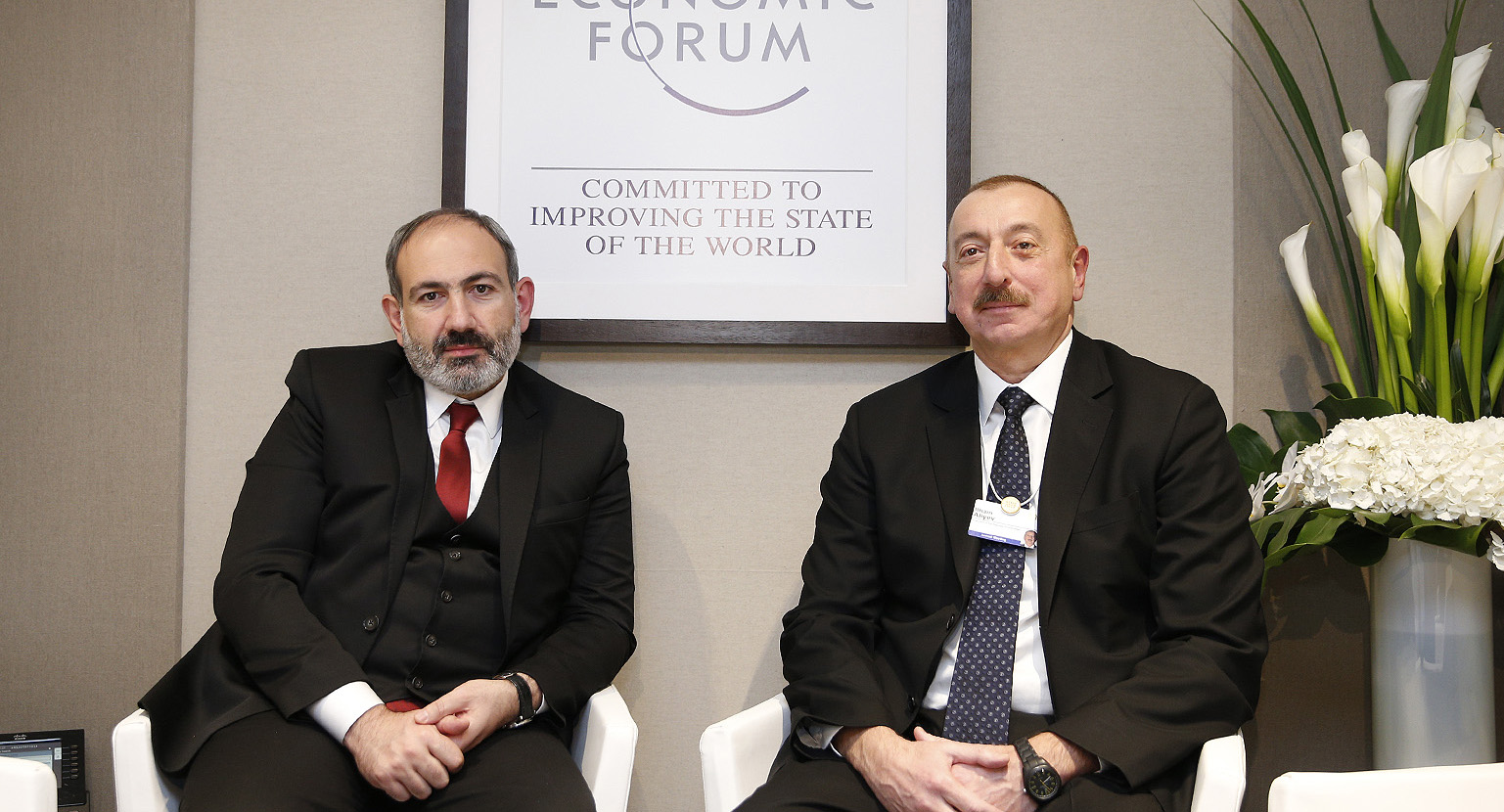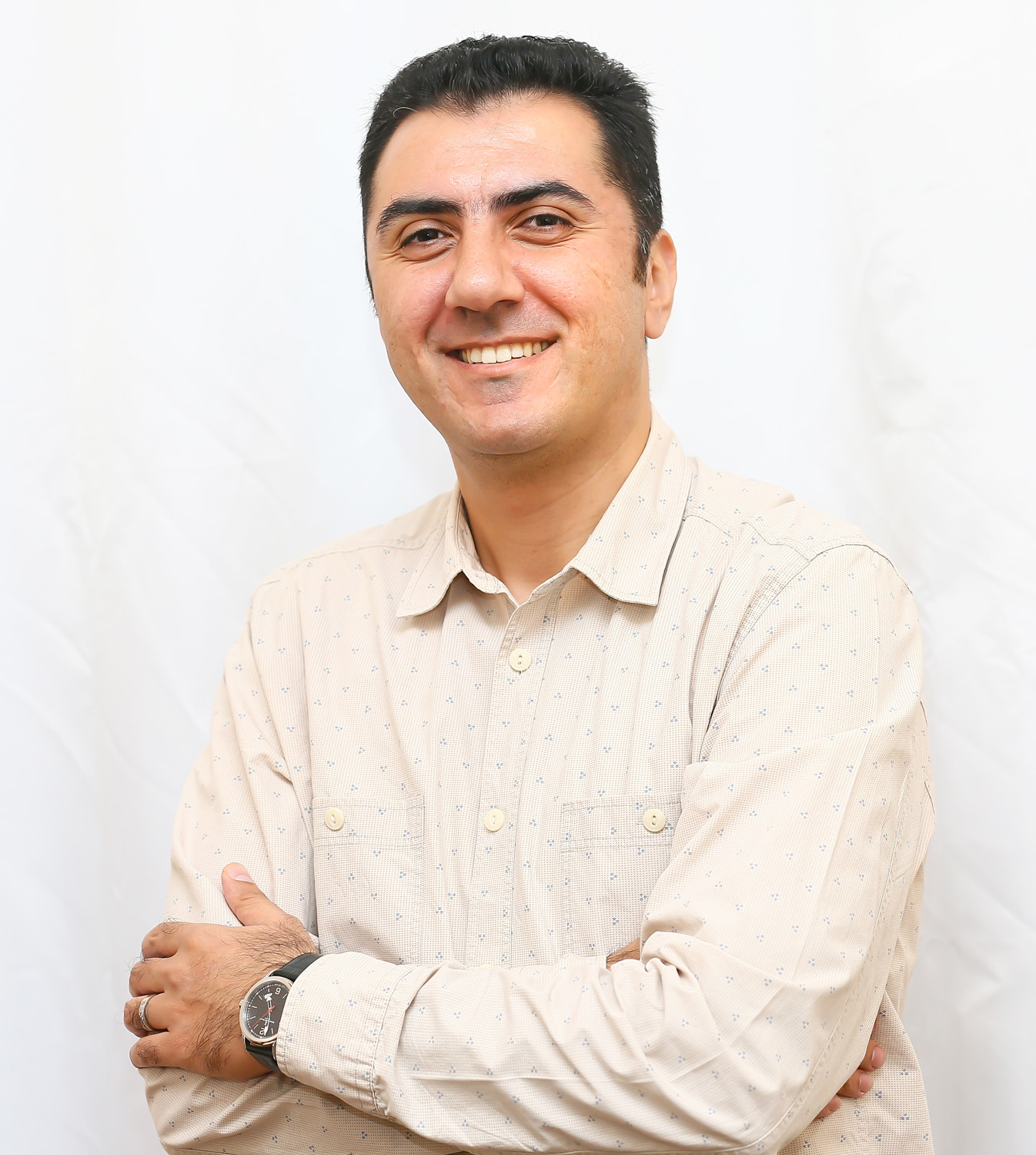
Ahead of a meeting between the Armenian PM Nikol Pashinyan and Azerbaijani President Ilham Aliyev this Friday, Azerbaijani analysts and politicians share their hopes and concerns over the rekindled dialogue between Armenia and Azerbaijan over the Nagorno-Karabakh conflict.
The January statement of the OSCE Minsk Group co-chairs that it was necessary to ‘prepare the populations for peace’ over Nagorno-Karabakh came as a breath of fresh air in the long-stalled negotiation process, raising hopes for a new opening.
The co-chairs of the OSCE Minsk Group consisting of France, Russia, and the US, and tasked with facilitating negotiations between the conflicting parties, visited Yerevan and Baku in February and welcomed the absence of casualties on Nagorno-Karabakh’s line of contact and the developing discussions on future peace.
Reactions to the messages sent during the January meeting of Azerbaijani Foreign Minister Elmar Mammadyarov and Armenian Foreign Minister Zohrab Mnatsakanyan show that the sides have started to attach importance to these contacts.
Azerbaijani President Ilham Aliyev and Armenian Prime Minister Nikol Pashinyan have held informal meetings three times since Pashinyan became prime minister. During the last visit of the OSCE co-chairs to the region, it became clear that the political leadership of the two countries would officially meet for the first time through their mediation.
On 5 March, Aliyev met with Miroslav Lajčák, the OSCE chairperson-in-office and Slovak foreign minister. During the meeting, Lajčák said they were determined to contribute to the negotiation process.
Core issues first
Elkhan Shahinoghlu, analyst and head of Baku-based Atlas Research Centre told OC Media that he wasn’t hopeful that Slovakia — the chair of the OSCE — could solve the Nagorno-Karabakh conflict, considering the OSCE’s past experiences.
‘The OSCE has been involved in solving the Nagorno-Karabakh conflict for more than 25 years, but there has been no progress. Prior to Slovakia, foreign ministers of different countries chairing the OSCE said they would try to resolve the Nagorno-Karabakh conflict. But there was no result.’
‘The former Foreign Minister of Germany said in 2016 that he had prepared a solution plan. But the plan was not disclosed’, Shahinoghlu said.
Commenting on the forthcoming meeting between the leaders of Armenia and Azerbaijan, political analyst Ilgar Valizada said that Aliyev and Pashinyan should greenlight what was discussed at the meeting of foreign policy chiefs of the two countries.
‘Negotiations on the preparation for peace were discussed in the previous meetings, along with other issues. That is, the withdrawal of troops from the occupied territories, the return of internally displaced persons, security issues, and others’, Valizada told OC Media.
Valizada argued that the peace process can’t be discussed independently of these issues and they need to be addressed first.
‘An unclear approach’
Azer Gasimli, analyst and president of the opposition REAL party’s assembly told OC Media that with their change in leadership, Armenia’s approach to the conflict has been rather unclear.
‘Pashinyan’s position differs from the policy of [former Presidents Serzh] Sargsyan and [Robert] Kocharyan. He is not a representative of the “Karabakh clan”, like the others. Pashinyan proposed Nagorno-Karabakh’s participation in the negotiation process, while keeping the format of the OSCE Minsk Group’, Gasimli told OC Media.
Gasimli argued that there was a discrepancy between statements by Pashinyan and Armenian Defence Minister Davit Tonoyan’s latest suggestion to refocus the Armenian military doctrine from defence to offence. He also questioned the involvement of Armenia in the conflict ‘if the conflict is [supposedly] between Nagorno-Karabakh and Azerbaijan’.
‘The Armenian government is experiencing a sensitive period. Although their relations with Russia are tense, Russia was named a strategic partner in the new government’s foreign policy document. They have displayed loyalty to the Collective Security Treaty Organisation and the Eurasian Union’, Gasimli said.
‘Creating trust among the parties’
At a joint press conference in Brussels with the EU’s Commissioner for European Neighbourhood Policy, Johannes Hahn, Pashinyan was asked about the recent meetings with Ilham Aliyev.
‘Our upcoming meeting should inter alia feature a discussion on the format of the negotiations, because we do believe, and our position has not changed so far, that in order to achieve an eventually effective solution, we first of all need to create an appropriate format, which would imply Nagorno-Karabakh’s participation in the negotiation process’, Pashinyan said.
Hahn emphasised that the parties should maintain the format of the existing negotiations on the settlement of the Karabakh conflict:
‘If the conversation is about our support, I think that we need to maintain the format of the current negotiations. There is no need to create something new for the sake of creating it. In general, it’s about getting trust among the parties’, Hahn said.
‘No serious initiatives’
According to Avaz Hasanov, conflict specialist and chairman of the Humanitarian Research Public Union, the recent processes of conflict resolution show that the sides have no serious initiatives to begin the normal negotiation process.
According to him, the Armenian side is slowing down the negotiation process with various proposals to gain time for a better position. The Azerbaijani side is interested in the continuation of negotiations.
‘The views voiced during the OSCE Chairman-in-Office’s visit to the region, as well as the meeting of Pashinyan with Johannes Hahn prove that the continuation of negotiations and achievement of the results are important for the West’, Hasanov told OC Media.
Hikmat Hajiyev, Head of the Department for Foreign Policy under the Presidential Administration, writes in an article, published on Euractiv.com that ‘the Armenian prime minister cannot answer a very simple question, saying he cannot speak on behalf of the Armenians living in Karabakh: What are the Armenian armed forces doing in the sovereign territories of Azerbaijan?’
‘Paradoxically, the Armenian leadership, on the one hand, expresses support for the efforts of the OSCE Minsk Group co-chairs, while on the other hand, calls for the change of the format of the negotiations and violates the co-chairs’ work,’ Hajiyev notes.
‘The format remains unchanged’
Rey Karimoghlu, a veteran of the Nagorno-Karabakh war and spokesperson for the Karabakh Veterans Union, is sceptical about the purpose and activities of the Minsk Group.
‘I think the negotiations on the solution of the problem are ineffective. In general, the activity of the OSCE Minsk Group should be suspended. Azerbaijan should liberate its occupied territories by diplomatic and military means. It is possible both by international law and the laws of Azerbaijan’, Karimoghlu told OC Media.
According to a press statement by the Co-Chairs of the OSCE Minsk Group on the upcoming meeting, a fair and lasting settlement must be based on the core principles of the 1975 Helsinki Final Act, which is based on two core tenets of territorial integrity and the right to self-determination.
As per Leyla Abdullayeva, spokesperson for the Azerbaijani Foreign Ministry, ‘this statement by the co-chairs of the Minsk Group is a signal to Armenia and we welcome it’.
‘Negotiations on resolving the conflict are conducted between Armenia and Azerbaijan. The format of the negotiations remains unchanged. Attempts to attract the separatist regime established in our occupied territories to negotiations and attempts to change the format are unacceptable. The statement of the co-chairs also includes the steps to be taken in connection with the settlement of the conflict,’ the spokesperson said.
[Read from Armenia on OC Media: Armenia hopes for Nagorno-Karabakh’s return to the negotiating table]
All place names and terminology used in this article are the words of the author alone, and may not necessarily reflect the views of OC Media’s editorial board.




 27 March 2019
27 March 2019



